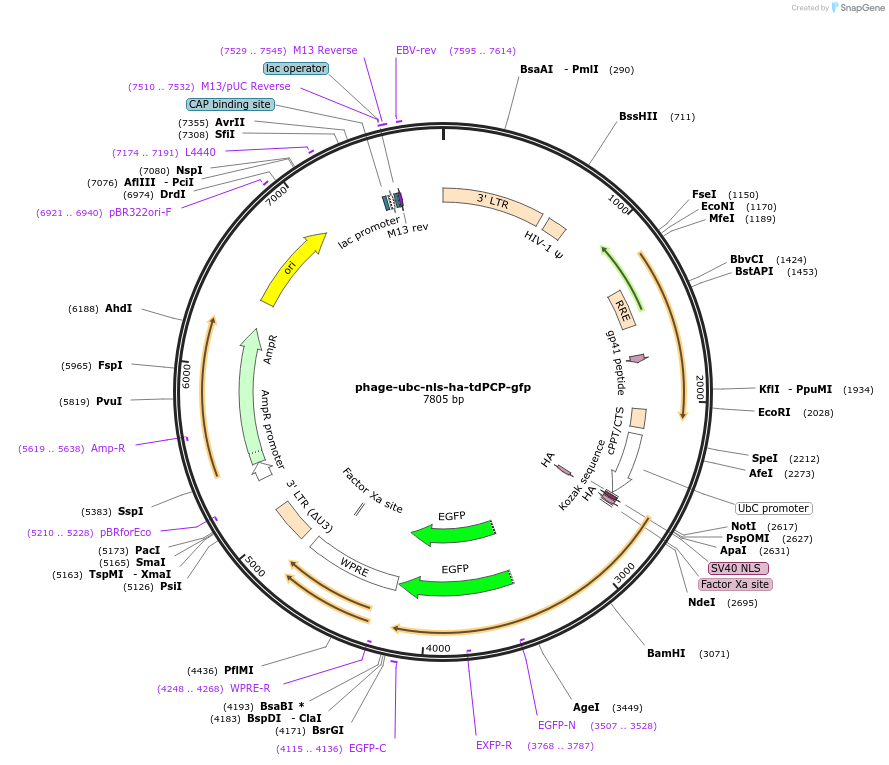-
Depositing Lab
-
Sequence Information
Ordering
| Item | Catalog # | Description | Quantity | Price (USD) | |
|---|---|---|---|---|---|
| Plasmid | 40650 | Standard format: Plasmid sent in bacteria as agar stab | 1 | $89 | |
Backbone
-
Vector backbonepHAGE-UBC-RIG (modified)
-
Modifications to backbonesee associated publication
-
Vector typeMammalian Expression, Lentiviral
Growth in Bacteria
-
Bacterial Resistance(s)Ampicillin, 100 μg/mL
-
Growth Temperature37°C
-
Growth Strain(s)NEB Stable
-
Copy numberUnknown
Gene/Insert
-
Gene/Insert nametdPCP-gfp
-
Alt nametandem dimer PP7 bacteriophage coat protein (PCP)
-
SpeciesSynthetic
-
Insert Size (bp)1557
- Promoter human ubiquitin C (UBC)
-
Tags
/ Fusion Proteins
- NLS (N terminal on backbone)
- HA (N terminal on backbone)
- EGFP (C terminal on backbone)
Cloning Information
- Cloning method Restriction Enzyme
- 5′ cloning site unknown (unknown if destroyed)
- 3′ cloning site unknown (unknown if destroyed)
- 5′ sequencing primer FUGW (5'-ATTACAGGGACAGCAGAGATCC-3')
- 3′ sequencing primer WPRE-R (5'CATAGCGTAAAAGGAGCAACA-3')
- (Common Sequencing Primers)
Resource Information
-
Articles Citing this Plasmid
Terms and Licenses
-
Academic/Nonprofit Terms
-
Industry Terms
- Not Available to Industry
Trademarks:
- Zeocin® is an InvivoGen trademark.
Depositor Comments
The linker region between the two PCPs is CGTGCGGATCCGCTAGCCTCC
These plasmids were created by your colleagues. Please acknowledge the Principal Investigator, cite the article in which the plasmids were described, and include Addgene in the Materials and Methods of your future publications.
-
For your Materials & Methods section:
phage-ubc-nls-ha-tdPCP-gfp was a gift from Robert Singer (Addgene plasmid # 40650 ; http://n2t.net/addgene:40650 ; RRID:Addgene_40650) -
For your References section:
Fluorescence fluctuation spectroscopy enables quantitative imaging of single mRNAs in living cells. Wu B, Chao JA, Singer RH. Biophys J. 2012 Jun 20;102(12):2936-44. Epub 2012 Jun 19. 10.1016/j.bpj.2012.05.017 PubMed 22735544



